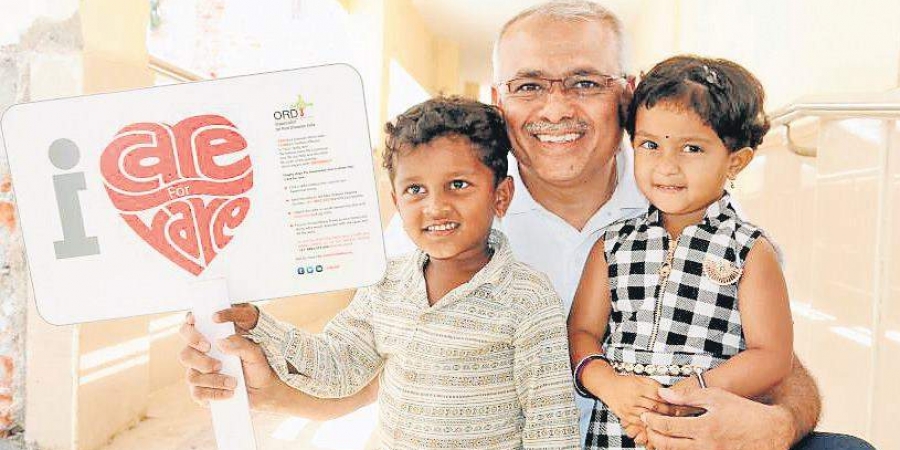India sees about 3,000 to 5,000 cases of Muscular Dystrophy.
Bengaluru :
India sees about 3,000 to 5,000 cases of Muscular Dystrophy. While England has about five specialised centres to handle such cases, India has none. This has given rise to India’s first paediatric neuromuscular service, called, ‘The Muscle and Nerve Clinic’. The initiative is for patients who suffer from rare diseases that affect their muscles and nerves, and was launched by Bangalore Baptist Hospital, in association with Organisation For Rare Diseases India (ORDI).
Prasanna Shirol, founder, ORDI, is the father of a girl who suffers from a rare disease, and knows first-hand of the plight one can face in such situations. “People suffering from rare diseases run from pillar to post to find appropriate help and treatment.
We started a rare disease care coordination centre in Indiranagar two years ago. This clinic provides care specialised in neuromuscular diseases and we hope to alleviate the struggle of families and young people dealing with it.”
The Muscle and Nerve Clinic was set up with an aim to provide treatment to families suffering from rare diseases. Some of the conditions treated here include Duchenne Muscular Dystrophy, Spinal Muscular Atrophy, Congenital Myopathies, Congenital Neuropathies, Congenital and Acquired Myasthenias and Limb Girdle Muscular Dystrophy. These cause weakness in muscles and the affected may not be able to jump, run or even sit without any support.
The clinic is open every Thursday at the Baptist Hospital. Prasanna says, “There are 7,000 rare diseases and the majority of cases that we have observed are related to muscle and nerves.
The challenge with a rare disease is its proper diagnosis. The symptoms can be visible at any age. Once these symptoms are identified and diagnosed, a treatment or support plan can be prepared. Prognosis can be identified and parents can also be mentally prepared to deal with it.” As many symptoms could be similar to other diseases, doctors might often miss out on these signs or wrongly diagnose them, he says. “This needs care from experts in multiple specialities such as paediatrics, nutrition and diet,” he adds.
Dr Ann Agnes Mathew, paediatric neurologist and neuromuscular specialist, said, “Many of these diseases may have a cure one day soon. But until then, we need to care for them so that children suffering from rare diseases can have a better quality of life. With a proper treatment plan, children who currently need support to sit may be able to do so without any help.”
Prasanna and others are also fighting for the implementation of the National Policy for Treatment of Rare Diseases. “We are filing a PIL. There is no clarity in the policy. It says `100 crore will be provided but the proper demarcation is not available. The treatments have also not begun. They say the treatment would be provided only to below poverty line patients but above poverty line patients may also not be able to afford treatment as costs could run into crores,” he says, adding that even insurances don’t cover rare diseases.
For emergencies contact: 080 22024700 For appointments contact: +91 8892555000 (ORDI helpline), Baptist OPD:080 22024322
source: http://www.newindianexpress.com / The New Indian Express / Home> Cities> Bengaluru / by Akhila Damodaran, Express News Service / October 23rd, 2018
